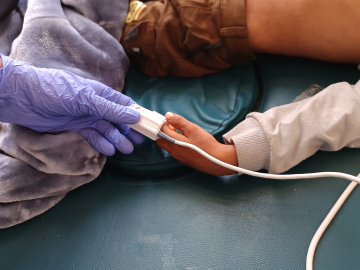Envisioning a New Public Health Order in Africa
COVID-19 has opened up a “historic opportunity” to forge a new public health order in Africa, says African Union Commission Chairperson Moussa Faki Mahamat.
“We must strengthen our partnerships and collaborations to chart a course for our own future – a future of self-reliance,” he said in opening remarks at the first-ever Conference on Public Health in Africa this week.
The conference has served as a forum for thousands of health care workers, researchers, government leaders and policymakers to map the future of public health across the continent.
A key focus has been the creation of a new public health order. In one session yesterday, WHO’s Assistant Director-General Chikwe Ihekweazu said that such an order would serve “as the convener of the expertise” required to respond to outbreaks. Some of its core objectives:
-
Strengthen national public health institutions.
-
Bolster local production of vaccines, therapeutics, and diagnostics.
-
Invest in the public health workforce.
-
Forge strategic partnerships with the private sector.
-
Empower regional organizations for pandemic governance
“Now is not the time for scratching around at the edges,” Chikwe said. “This is a time for bold and radical changes.”
Such an order would require significant financing and major investment in a depleted health workforce.
Natalie Mayet, with South Africa’s National Institute for Communicable Diseases, likened the plight of health care workers during COVID-19 to that of an undervalued and under-equipped army.
Over the past year, health care workers across the continent have faced severe burnout, and thousands have died of the virus— impairing countries’ capacity to meet other threats, Mayet said. Others who worked behind the scenes in public health institutes have been forgotten, she added.
“We need to start focusing on: where are we going to draw our next generation from?” she asked. “How are we going to develop them?”
A technician places a beaker into a hatch inside the Afrigen Biologics & Vaccines Ltd. laboratory facility in Cape Town, South Africa, July 12, 2021. Image: Dwayne Senior/Bloomberg via Getty




